PyGMTSAR (Python GMTSAR) - Easy and Fast Satellite Interferometry For Everyone
Project description
PyGMTSAR (Python GMTSAR) is an open source project and Python package that provides Sentinel-1 Satellite Interferometry for everyone.
The goal of the project is easy and fast satellite interferometry (InSAR) processing for Sentinel-1 radar scenes everywhere as on localhost as on cloud environments like to Google Cloud VM and AI Notebooks and Amazon EC2 and on free of charge cloud environment Google Colab and in Docker images. GMTSAR binary command line tools are used under the hood but all GMTSAR scripts and GMT command replaced by Python code using modern and robust algorithms.
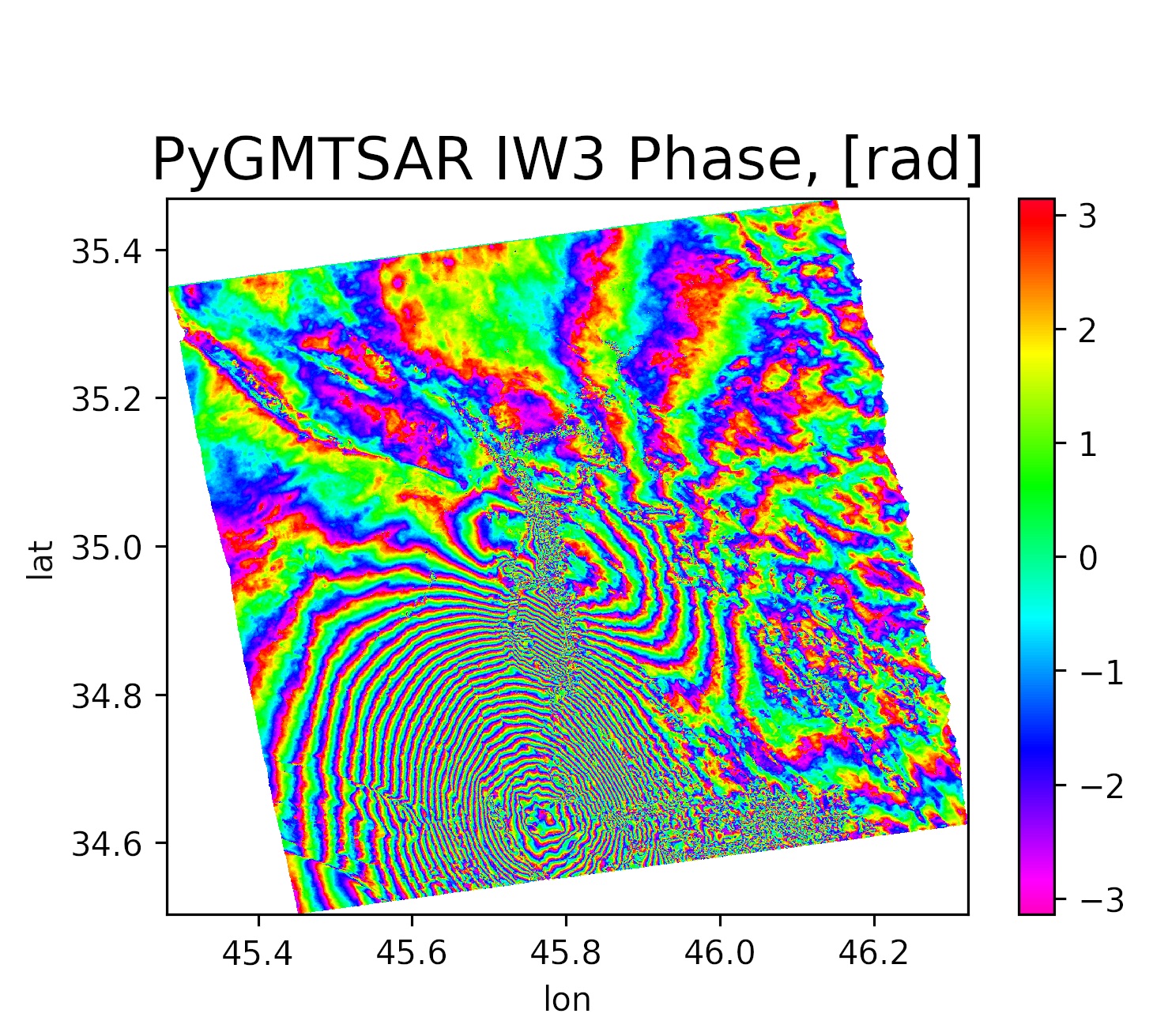
Why PyGMTSAR?
PyGMTSAR combines powerful Python instrumentary for sophisticated multidementional processing (xarray library) and lazy calculations (dask library) plus parallel computing (dask and joblib libraries) to perform fast and interactive processing on huge datasets. And the best algorithms and numerical computation approaches applied for all the processing steps. There are progressbars and preview plots for the every step and that's easy to save intermediate results and continue work later on the same or other host. And (thanks to joblib library) that's safe to interrupt the execution at any time without memory leaks (common for dask-based solutions).
Thanks to all the powerful Python libraries and the best used algorithms PyGMTSAR is fast and its possible to complete SBAS analysis for 5 years on 800 interferograms in just one day on Apple Air or Apple iMac (8 cores and 16 GB RAM) using 2 TB Sentinel-1 SLC scenes. And PyGMTSAR is user-friendly providing functions to download the required satellite orbit files and DEM and so on. This combination of the human-readable and short code and powerful computing is the key to use PyGMTSAR everywhere from education and to research and more.
Live Examples in Docker image
Configure your Docker runtime (Preferences -> Resources tab for Docker Desktop) to use 2 CPU cores and 8 GB RAM or 4 CPU cores and 16 GB RAM and so on. Download the Docker image (or build it yourself using the Dockerfile in the repository) and run the container forwarding port 8888 to JupyterLab using this commands inside your command line terminal window:
docker pull mobigroup/pygmtsar
docker run -dp 8888:8888 --name pygmtsar docker.io/mobigroup/pygmtsar
docker logs pygmtsar
See the output for the JupyterLab link and copy and past it into your web browser address line. Also, the donwloaded Docker image can be started in Docker Desktop app - press "RUN" button and define the container name and the port in the opened dialog window (see "Optional settings" for the port number input field) and click on the newly created container to launch it and see the output log with the clickable link.
Live Examples on Google Colab
Click on the examples below to run the processing in your own browser without any software installation. That's like to magic and it works.

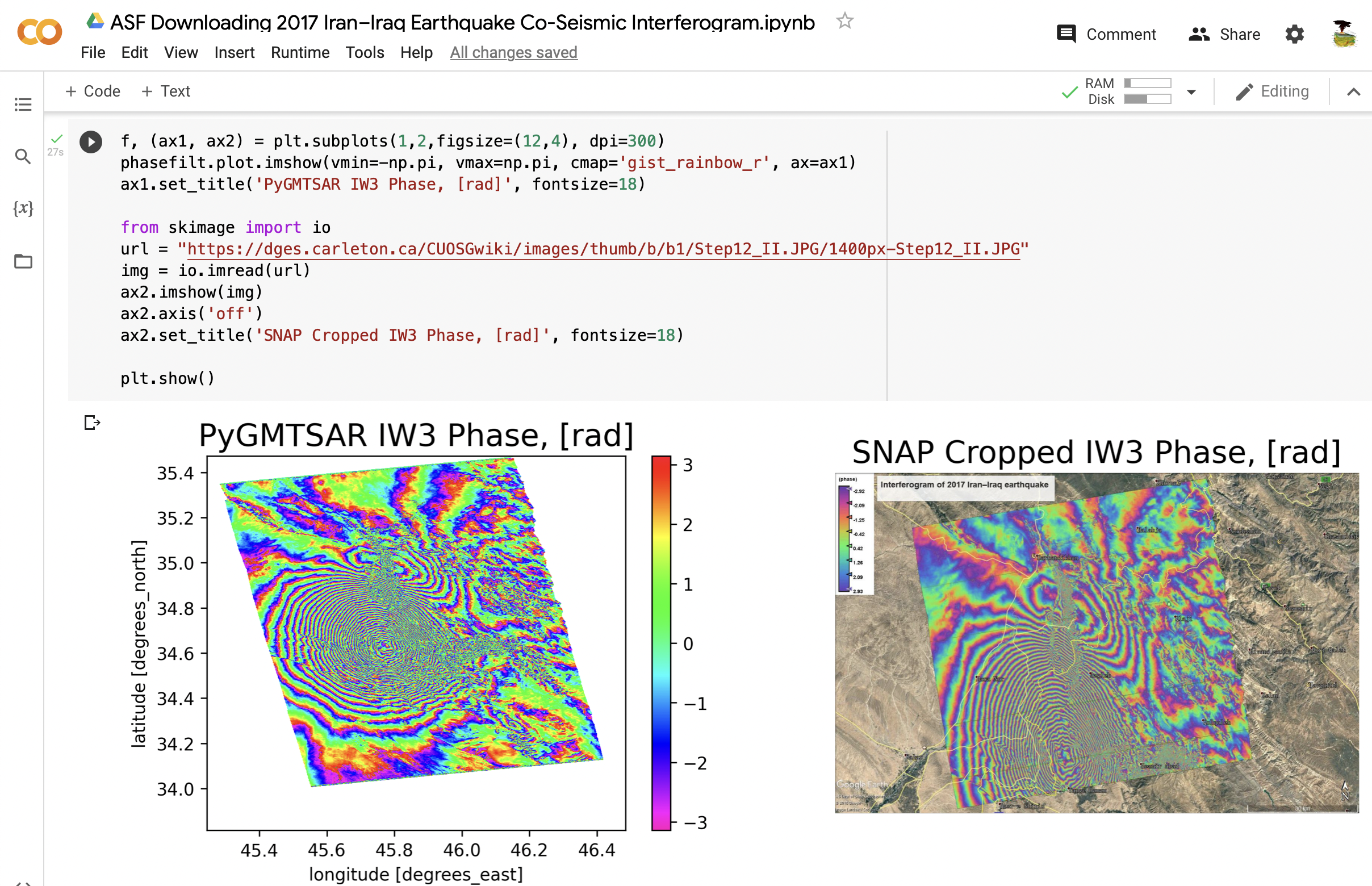

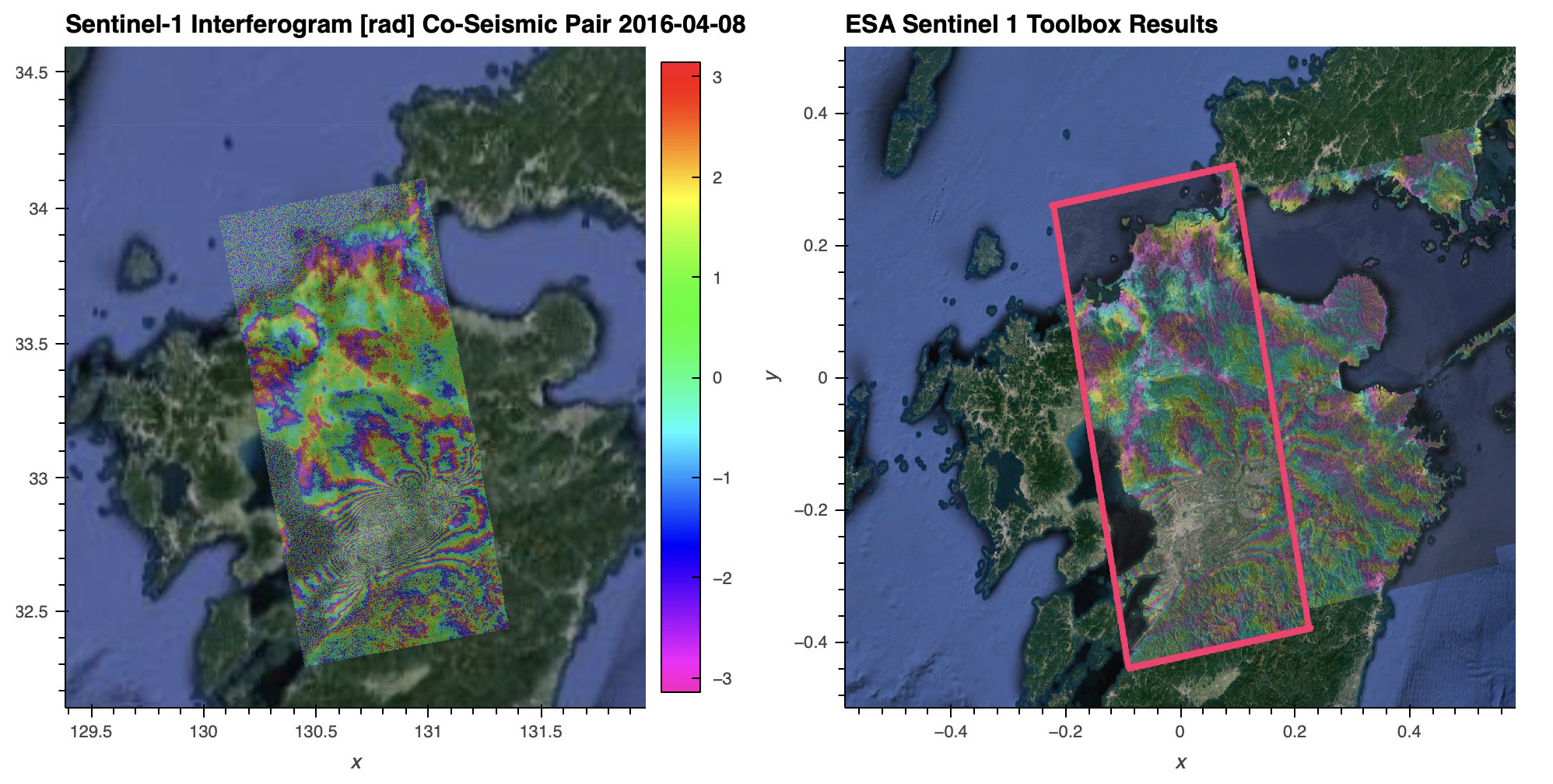
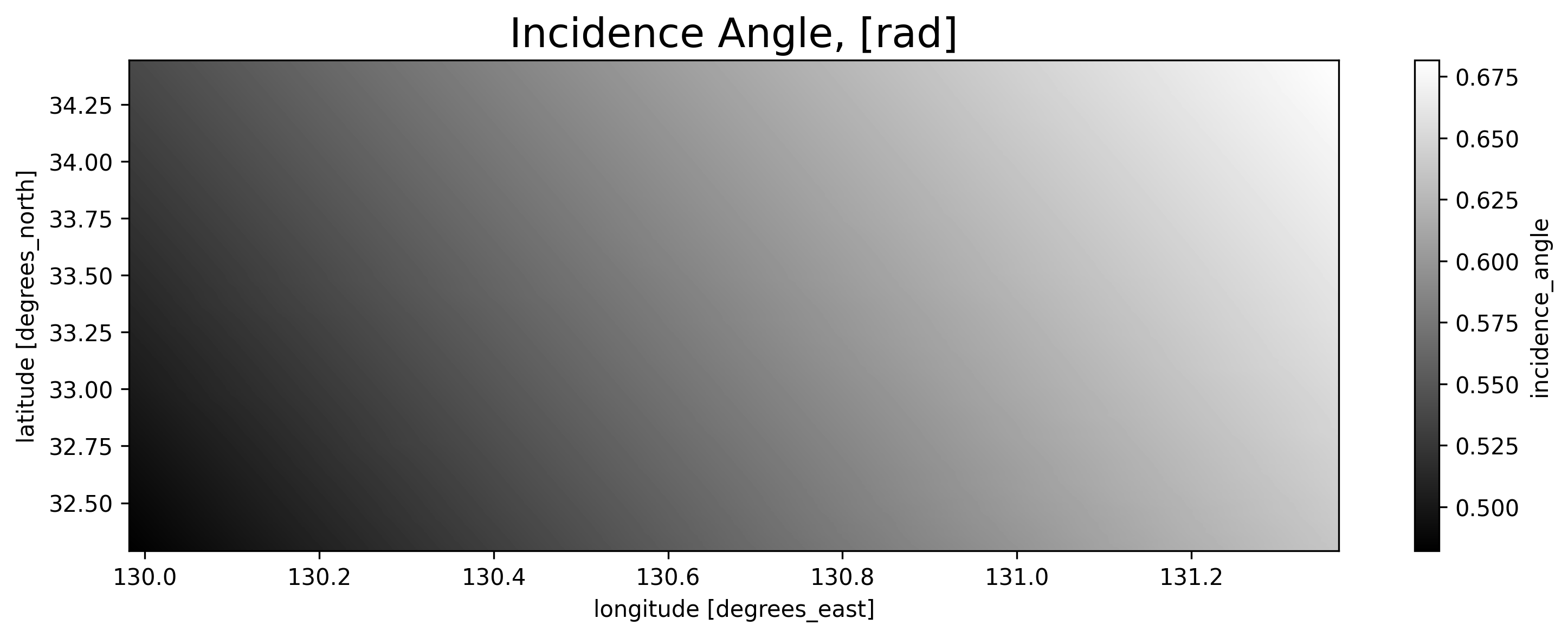
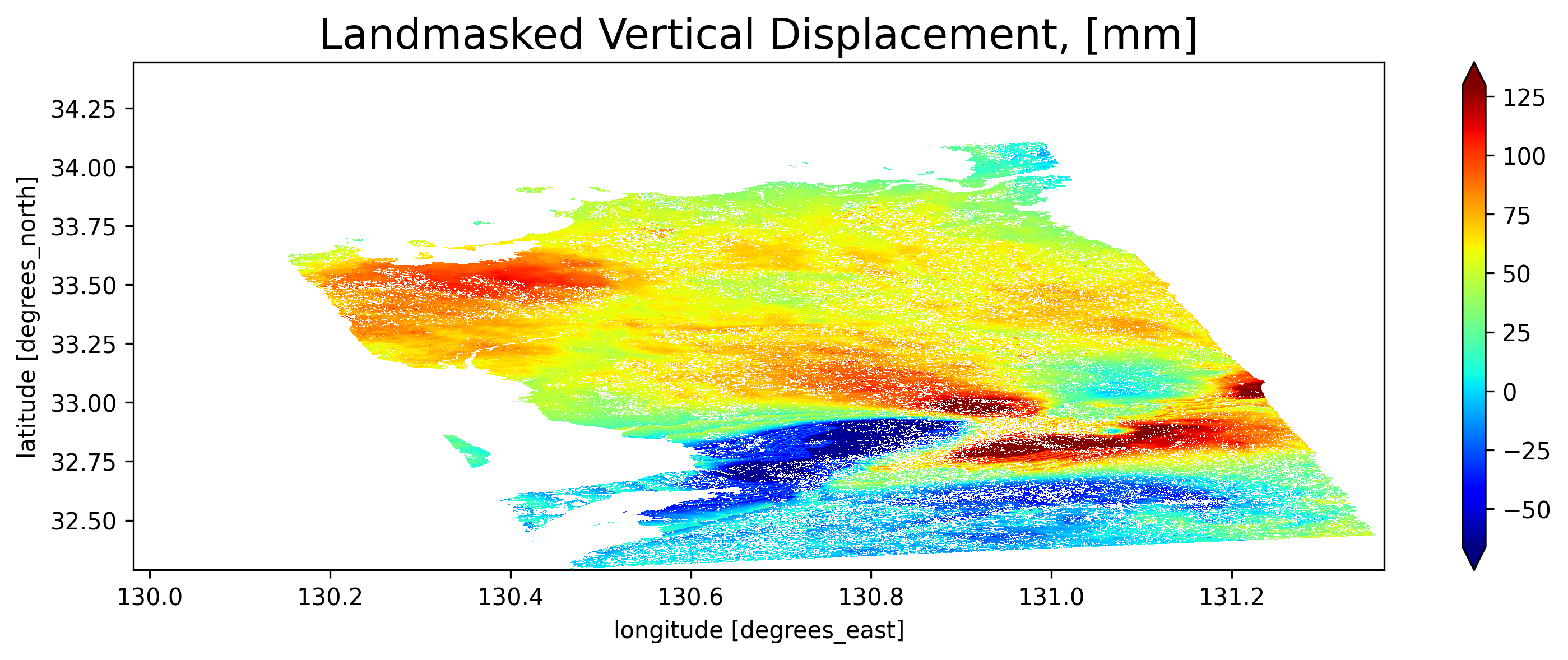

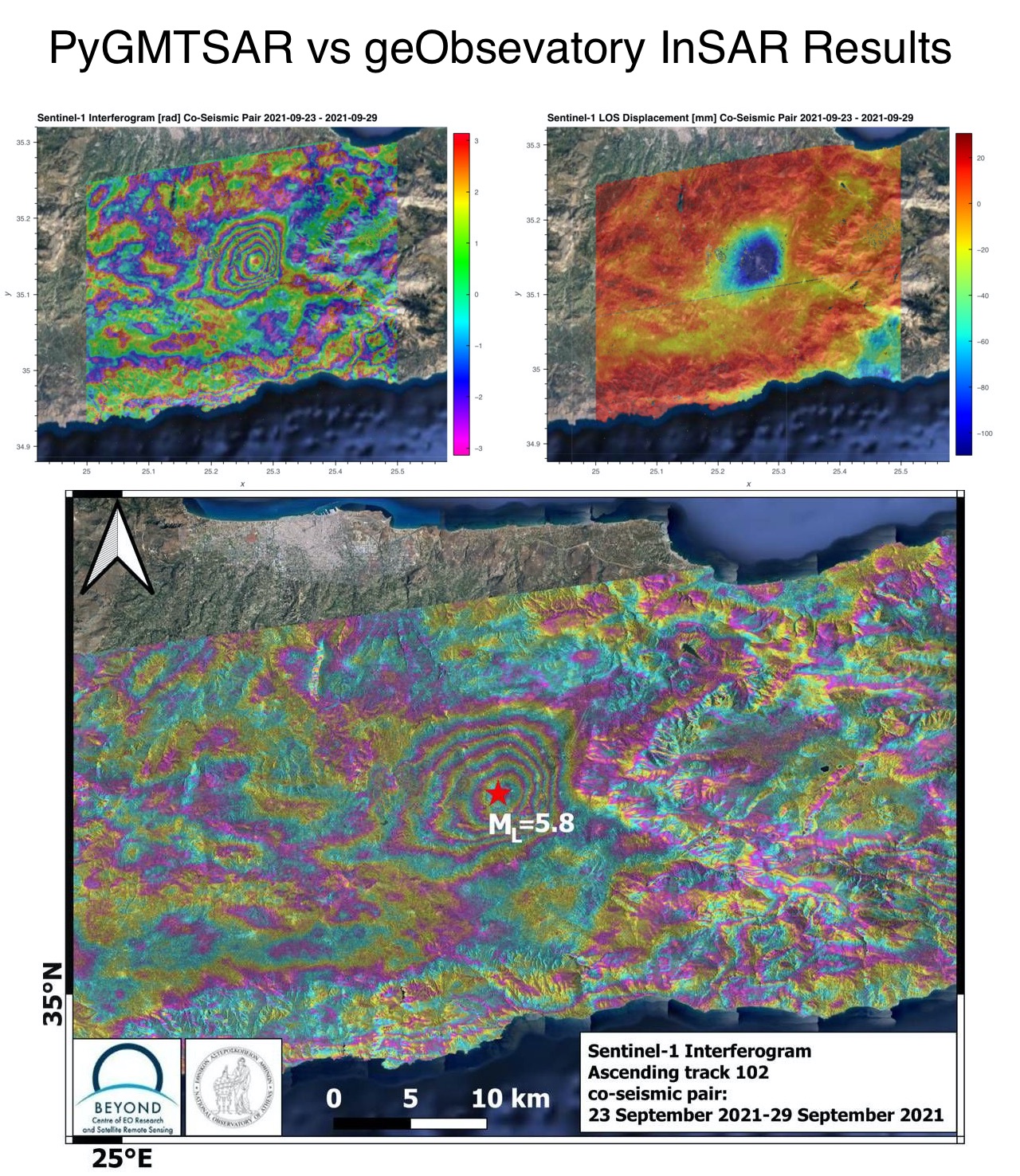
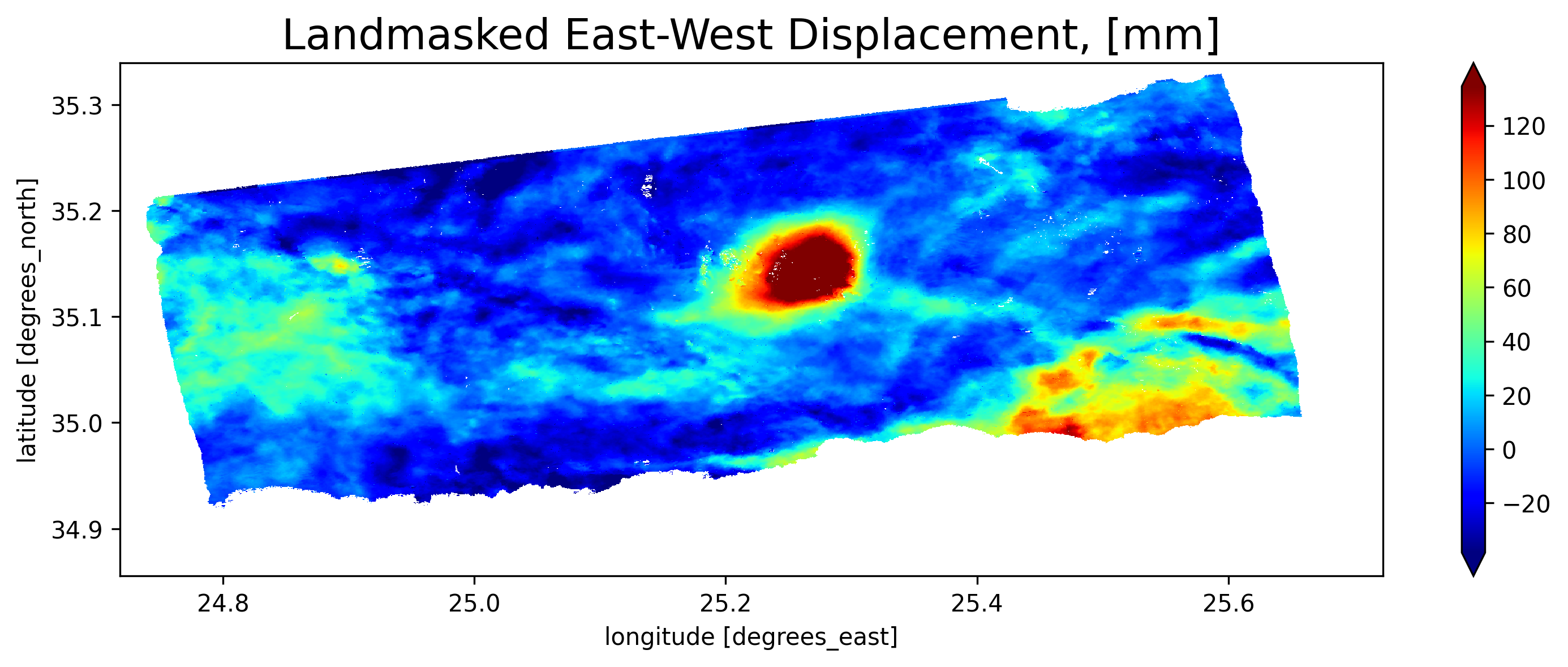

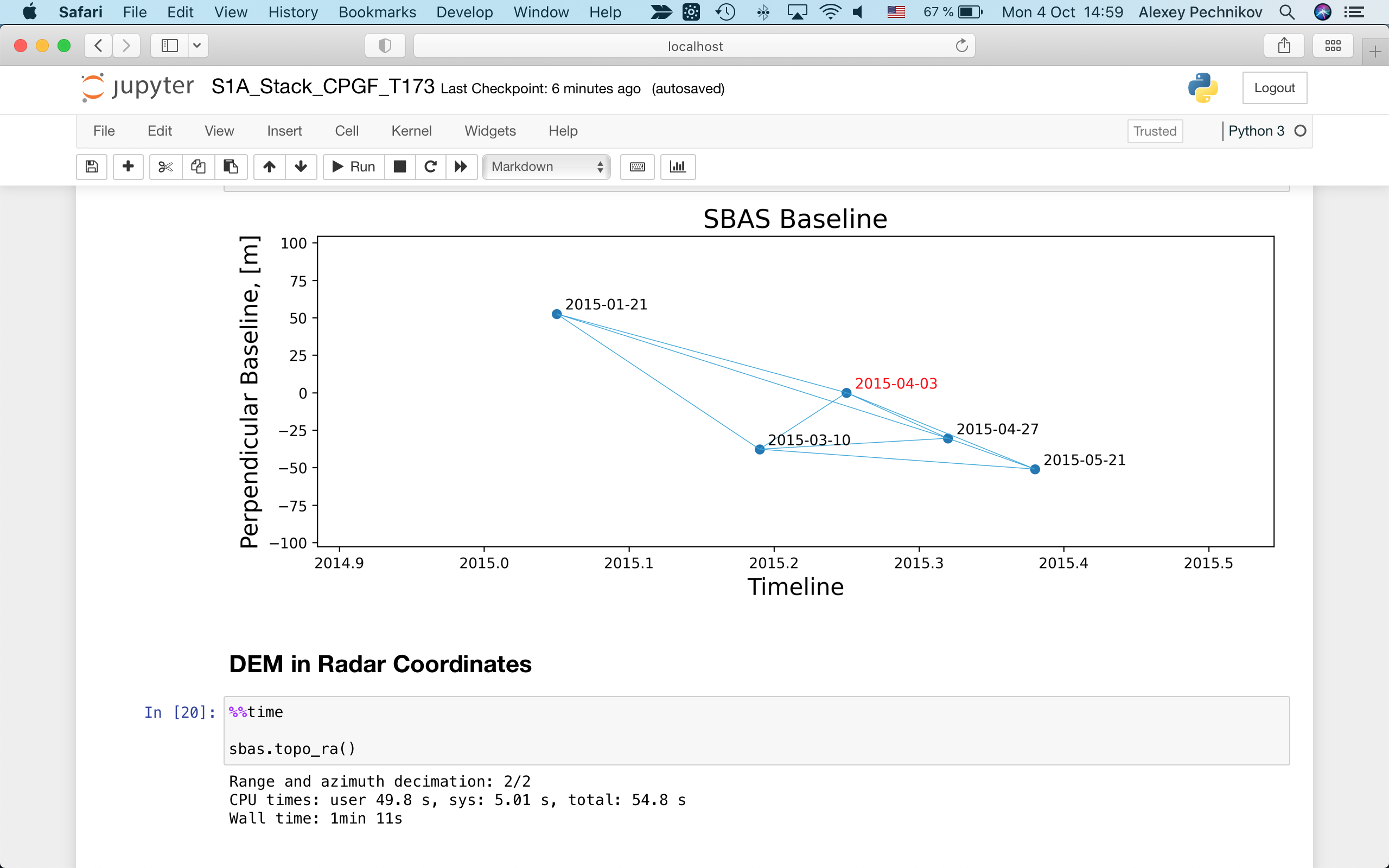
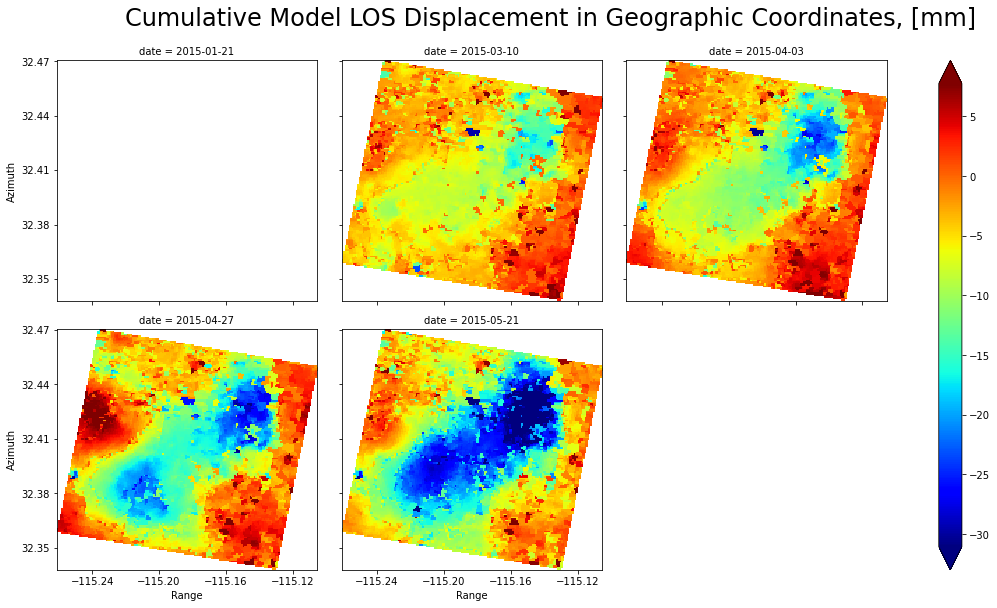

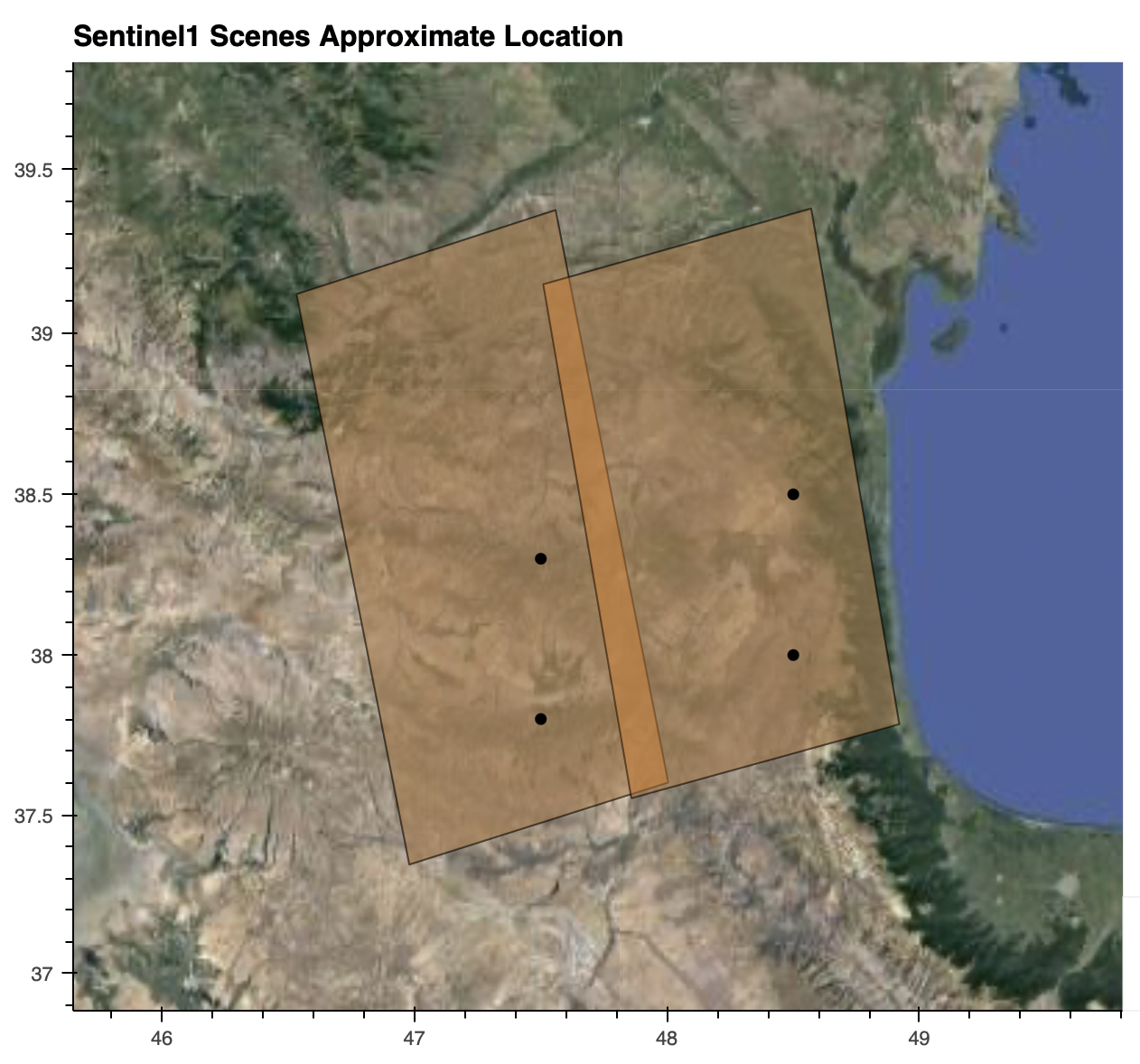
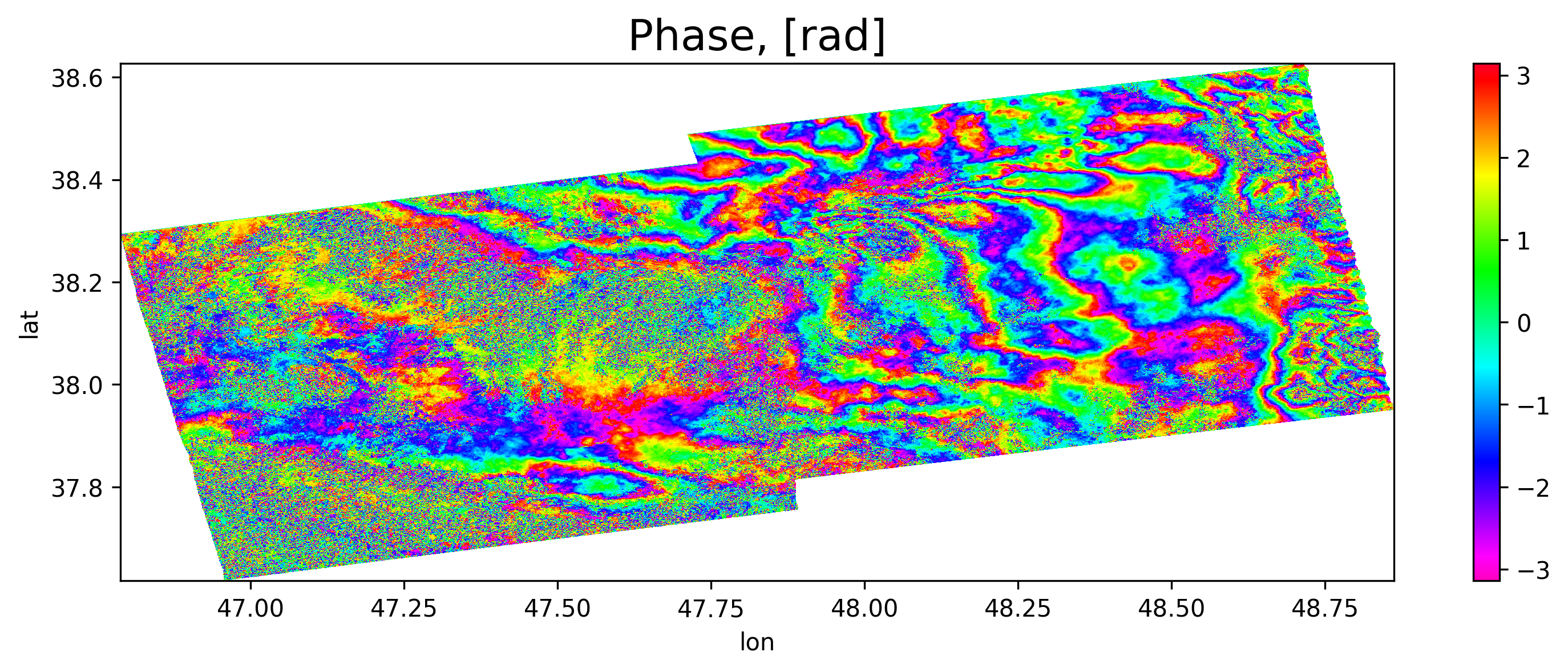
Learn more
-
Documentation: https://github.com/mobigroup/gmtsar
-
Issue tracker: https://github.com/mobigroup/gmtsar/issues
-
Source code: https://github.com/mobigroup/gmtsar
-
Docker Images: https://hub.docker.com/repository/docker/mobigroup/pygmtsar
-
PyPI Python library: https://pypi.org/project/pygmtsar/
Project details
Release history Release notifications | RSS feed
Download files
Download the file for your platform. If you're not sure which to choose, learn more about installing packages.
Source Distribution
Built Distribution
Hashes for pygmtsar-2023.2.14-py3-none-any.whl
| Algorithm | Hash digest | |
|---|---|---|
| SHA256 | c6e1af9a975525ce202e7b5124184ef3c25a3fbfddb8e4c2961e0da48f929a00 |
|
| MD5 | 09026344fe20f3ec68e4322b72a6a35a |
|
| BLAKE2b-256 | 9cf299155d09fb24a397a43402affa41efeee81cda9261ee368289d6ec23948b |
















